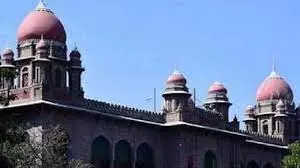Ballot Paper Printing Priority Questioned

Hyderabad: A two-judge bench of the Telangana High Court rejected a challenge to the manner of listing names on ballot papers under the Representation of the People Act (RPA), 1951.
The bench comprising Chief Justice Alok Aradhe and Justice N.V. Shravan Kumar heard a party in person, P. Pareekshith Reddy, a practising advocate, who challenged Rule 5.7.1 of the Handbook for Candidates issued by Election Commission of India and Section 38(2) of the RPA which prescribes (for the purpose of listing the names under Sub-Section (1), the candidates shall be classified as (i) candidates of recognised political parties, (ii) candidates of registered political parties other than those mentioned in clause (i), (iii) other candidates).
The petitioner contended that order of arrangement of the candidates on the ballot paper under Rule 5.7.1 of the Handbook for Candidates issued by the Election Commission of India and under Section 38(2) of the RPA preferential treatments given to the candidates with regard to recognised parties with others.
He contended that all candidates should be treated equal. Senior counsel Avinash Desai appearing for the Election Commission of India relied upon a judgment of the Supreme Court in ‘People’s Union for Civil Liberties and Others vs Union of India’, which had held that the right of the elector to vote is a statutory right and not a fundamental right. The recording the same dismissed the writ petition.
HC declares ESI action as malafies
Justice S. Nanda of the Telangana High Court set aside the award of a tender for emplacement of a local chemist for the purchase of drugs required by the ESI Corporation Hospital and College at Sanatnagar as irrational and intended to favour the beneficiary. The judge allowed the writ plea filed by Venkata Ramana Medical and General Stores which complained about the award of the tender in favour of Vijaya Medical and General Stores. According to the petitioner, the tender evaluation committee declared the petitioner as qualified and the beneficiary as disqualified. This notwithstanding, the tender was awarded in favour of the beneficiary. In fact, counsel for the ESI had informed the court that it had been disqualified. Relying on judgments of the apex court, Justice Nanda said, “A bare perusal of the relevant portion of the Apex Court judgment clearly indicates that a tender process can be interdicted in judicial review when the process adopted or decision made by the Authority is mala fide or intended to favour someone.” The judge applied it to the facts of the case. “This court opines that in the present case, an essential tender condition which had to be strictly complied with had not been complied and the 1st Respondent admittedly would have no power to condone lack of such strict compliance. Any such condonation, as has been done in the present case, would amount to perversity in the understanding or application of the terms of the tender conditions, and the same warrants interference by this court,” Justice Nanda said.
Maintain status quo of Dargah Hazrath Shah Lateefullah Khadri: HC
Justice Nagesh Bheempaka of the Telangana High Court required the Telangana State Wakf Board to maintain the status quo with regard to the possession of Dargah Hazrath Shah Lateefullah Khadri RA in Nalgonda town.
Syeda Asfiya Sultana and three others, legal representatives of the late Syed Basharathullah Quadri, filed the writ petition complaining that the authorities were trying to dispossess their claim to be ancestral caretakers/mutawallis of the dargah by assuming direct management of the property under the guise of a joint report of the tahsildar, inspector auditor and surveyor Wakf. The petitioners said the respondents were threatening to dispossess them without putting them on notice and without following due process.

